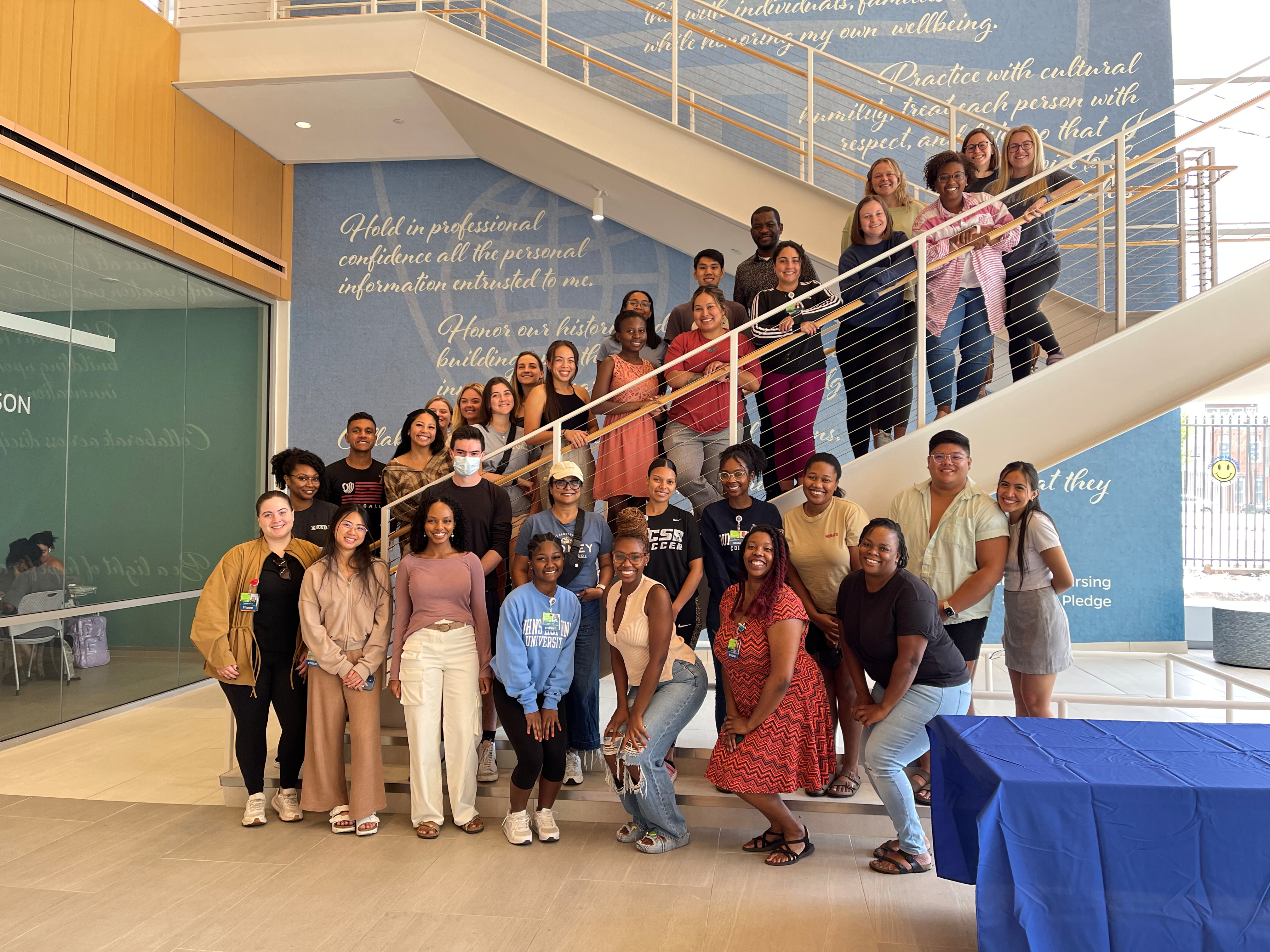Tutoring program to celebrate 5 years of helping DNP, MSN students believe
Before she could set about constructing the Learning Collaborative—a free writing and tutoring program originally known as the Academic Success Center at the Johns Hopkins School of Nursing—Renée Mitchell-Matsuyama needed some building up herself.
She credits Jennifer Dotzenrod, associate dean of enrollment management and student affairs, with recognizing the need for such a program and then seeing the potential in Mitchell-Matsuyama, now manager of the Learning Collaborative, which serves students from the Master’s (Entry into Nursing) and Doctor of Nursing Practice programs. Originally from the West Coast, she attended graduate school at the University of Wisconsin-Madison (English and student affairs), and then spent several years running a college women’s center in Minnesota.
“The job pulled together a lot of different pieces of my academic and career journey. But in a new thing. I had never done this,” insists Mitchell-Matsuyama. “Not only had I never run a learning center, but I’d never built anything from the ground up.” Nevertheless, she came aboard in August 2018, and officially launched the tutoring program in January 2019.
Today, as the Learning Collaborative nears its fifth anniversary, Mitchell-Matsuyama is grateful for the growing pains. “It was a blessing in the sense that I just let it become what it needed to become. I didn’t have any preconceived notions. We’ve been able to adapt and respond to the student body needs.”
The success of the Learning Collaborative can be measured, of course—”We do feedback surveys after the semester and that obviously gives us a metric for that,” Mitchell-Matsuyama explains. But you can also just feel it. “Ultimately, it’s demand. Say if we’re short-staffed a semester, the students and even the faculty are like, ‘What’s going on?’ The demand itself is evidence that we’re putting something good out, a value-forward type of product.”
For DNP students, the service almost exclusively includes help with writing. MSN students—“we’re regularly serving 50 to 60 percent of each cohort,” she reports—tend to need a bit more, not just in terms of course content but in learning how to absorb all that they must learn. “We put them into small groups, four to six students, pair them with a tutor, and then they meet with that tutor for the whole semester. The MSN program is such a beast. So I think it’s a really good model for not just helping them with the learning stuff but it also helps them build that kind of social support network.”
“At a school like this, the psychological stakes for the students in these programs is just astronomical,” she adds. “A lot of what we work on is confidence building, maybe the biggest determining factor of success. Any student that’s admitted here is capable of doing the thing. It’s the belief, whether they think they can.”
When she first arrived at JHSON, Mitchell-Matsuyama experienced similar doubt. But after five years she knows, “This is exactly where I’m supposed to be right now.”
Next on her personal learning curve: Sustainability. The Learning Collaborative is working, and it’s growing. “When we started, I had maybe 12 tutors. Today my staff is around 40-something people.” She’s proud that the work environment means people tend to stick around. Now, how does she make the Learning Collaborative—“the thing that we’ve built and the values we’ve built into it”—something that could survive and thrive under new leadership, when and if that day comes?
For Mitchell-Matsuyama and her team, it’s “Happy Anniversary!” Then, back to work.

 Birth Companions Talk Doulas and Maternal Health with Mayor Brandon Scott
Birth Companions Talk Doulas and Maternal Health with Mayor Brandon Scott Earth Day: An Opportunity to Address the Environmental Injustice of Plastic Pollution
Earth Day: An Opportunity to Address the Environmental Injustice of Plastic Pollution Forging Policy: How Can Doulas Improve Black Maternal Health?
Forging Policy: How Can Doulas Improve Black Maternal Health? No. 1 Rankings for the School of Nursing and a Pipeline to the “Best Jobs”
No. 1 Rankings for the School of Nursing and a Pipeline to the “Best Jobs” Global Service Learning: Guatemala
Global Service Learning: Guatemala



